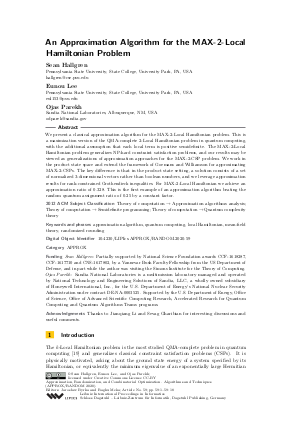LIPIcs.APPROX-RANDOM.2020.59.pdf
- Filesize: 460 kB
- 18 pages

 Creative Commons Attribution 3.0 Unported license
Creative Commons Attribution 3.0 Unported license









Feedback for Dagstuhl Publishing